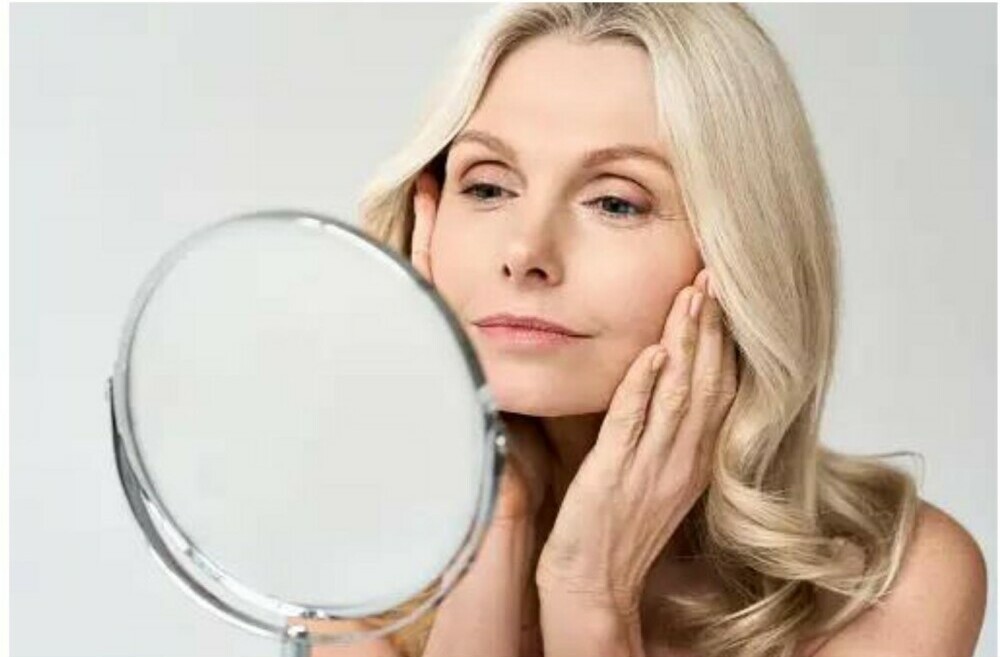
Hey there! Ever found yourself strolling down the skincare aisle, bombarded by products promising to turn back the clock? Well, let me tell you, anti-aging is more than just smoothing out wrinkles or chasing that youthful glow. It’s about diving into the biology of aging and making smart choices for our long-term health and well-being.
Now, let’s get one thing straight—anti-aging isn’t all about vanity; it’s also about vitality. Sure, the term might seem a bit misleading because, truth be told, we can’t hit the pause button on aging. But here’s the kicker: when we talk about anti-aging, we’re exploring ways to gracefully navigate the aging process, both inside and out.
I’m here to help you cut through the noise of anti-aging myths and get to the heart of what it’s all about. That means separating the scientific facts from the marketing hype and discovering practices that genuinely contribute to our overall well-being as we journey through life.
In my book, understanding anti-aging calls for a bit of a mindset shift. Let’s introduce the idea of approaching aging with harmony, where success isn’t about dodging the years but about embracing them with gusto. And to do that, you’ll need to get cozy with the biology behind aging—which, lucky for you, is exactly what we’re diving into next.
The Biology of Aging: Understanding the Process
I’m going to take you through the fascinating world of our body’s aging process. Believe it or not, aging isn’t just a matter of adding years to your life; it’s a complex biological journey that involves a myriad of changes.
To really get the scoop on anti-aging, you’ve got to start with the basics. And that’s going to include diving into the science of what happens to our bodies as we age. We’ll talk about the key factors such as genetics, cellular function, and the role of environmental influences.
As each birthday passes, your body’s systems undergo subtle transformations. For instance, your skin loses elasticity, bones may become more fragile, and muscle mass typically decreases. No magic potion can halt these changes, but understanding them is crucial.
You’re going to find out about the hallmarks of aging, which are essentially the universal changes that contribute to the biological aging process. From telomere shortening to mitochondrial dysfunction, we’ll unravel these big concepts and make them clear.
We’ll also consider the interplay between genetics and lifestyle choices, mentioning how actions you take can influence the rate of certain aging processes. Don’t worry too much about jargon; I’ll keep it straightforward and focused on what really matters to you.
So, as we move on to the next section, we’re going to look more closely at how to separate the wheat from the chaff when it comes to anti-aging interventions. We’ll explore which products and practices are backed by science, and which ones might just be riding the wave of marketing hype.
Anti-Aging Interventions: Science vs. Marketing
So, you’re intrigued about what truly works when it comes to slowing down the aging process. It’s crucial to sift through the noise and separate fact from fiction, especially with the abundance of products and procedures promising anti-aging miracles. Let’s navigate through this together.
The anti-aging market is flooded with products that promise the world but often lack solid scientific backing. You know, those creams that claim to ‘turn back time’ or supplements that swear to ‘rejuvenate cells’? To make informed decisions, we need to look beyond the flashy ads and ask: Does the product have credible clinical trials supporting its claims? Are the results published in reputable scientific journals?
Take retinoids, for example. These Vitamin A derivatives are backed by research showing they can improve skin texture and diminish wrinkles. I’ll shed light on more evidence-based practices like this so you can invest your time, hope, and money wisely.
Unfortunately, many anti-aging interventions rely more on anecdotal evidence than rigorous scientific research. I’ll delve into some popular yet questionable options, explaining why they might not be your best bet. For instance, ever heard of ‘oxygen facials’? While they claim to fight aging by infusing oxygen into the skin, there’s scant scientific proof of their long-term benefits.
Now, you’re probably wondering how to weave anti-aging strategies into your lifestyle without falling for marketing gimmicks. That’s where practical choices come in. It’s not just about what you apply to your skin; it’s also about what you eat, how you move, and how you manage stress. So, in our next discussion, we’ll dive into the profound impact of diet, exercise, and stress management on longevity and vitality. Ready to explore? Lifestyle Choices and Their Impact on Aging
When it comes to aging, it isn’t just genetics at play. Daily choices shape your health trajectory far more than you might expect. Let’s look at how you influence your aging process through lifestyle choices – starting with the plate in front of you.
Your dietary habits are front and center in the anti-aging battle. Foods rich in antioxidants, healthy fats, and essential nutrients can counteract the effects of aging on a cellular level. Think blueberries, nuts, and leafy greens – nature’s medicine cabinet.
Don’t underestimate the power of regular physical activity. Whether it’s walking, or lifting weights, exercise strengthens your body, boosts your mood, and wards off age-related decline. Plus, it’s never too late to start.
Next up, stress. It’s not just a buzzword – chronic stress can fast-track aging, detrimental to your cells with oxidative stress. Finding techniques to manage stress like meditation or hobbies isn’t a luxury; it’s a necessity.
Then there’s the silent healer: sleep. Quality zzz’s are essential. They’re your body’s time to repair and fight off the years. If you’re cutting corners on sleep, you’re shortchanging your health.
It’s not just about dodging the years; it’s about embracing a quality of life that makes every year count. And remember, these aren’t silver bullets; it’s about consistency and balance.
Now, as we think about our lifestyle choices, let’s turn to the psychological side. After all, your mental outlook can be just as influential as your physical actions. That’s what I’m going to discuss next.
Psychological Aspects of Aging: Embracing Change
Aging isn’t just about the physical changes; it’s a complete package deal. Prepare to embark on an emotional journey as you add more candles to your birthday cake. It’s a ride that can be both fulfilling and challenging.
Emotionally, aging can throw you some curveballs. You’ll navigate shifting identities, changes in roles, and perhaps even bid farewell to some aspects of your life. But here’s the silver lining—the concept of ‘positive aging’.
Positive aging isn’t just about staying physically fit; it’s also about nurturing mental well-being. Keeping your mind sharp, staying connected, and remaining curious are key players here. Trust me, a solid social network can work wonders against the occasional blues that come with getting older.
In my view, society hasn’t always given our seniors the recognition they deserve. That’s why it’s vital to challenge ageism. Embracing every passing year means acknowledging that with age comes wisdom, stories, and a unique ability to connect the dots that younger generations might overlook.
Now, let’s shift gears and explore how all of this ties into the anti-aging narrative. The choices you make, the attitudes you adopt, and the culture we foster around aging will shape the innovations and trends we’ll witness in the coming years. Exciting stuff, right?
The Future of Anti-Aging: Trends and Innovations
If you’re curious about the future of anti-aging, get ready for an exhilarating journey. The field is evolving rapidly, with breakthroughs and innovations that could reshape our perceptions of aging.
In recent years, there’s been a surge of interest in slowing down or reversing the aging process. It’s not just about achieving smoother skin or fewer wrinkles; it’s also about extending longevity and enhancing overall quality of life as we grow older.
One area of anti-aging research that’s generating significant buzz is biotechnology. Scientists are exploring ways to manipulate cellular processes associated with aging using approaches like telomere therapy, senolytics, and CRISPR gene editing.
Imagine tailoring your anti-aging regimen to your unique genetic makeup. With advancements in genomics, this personalized approach is becoming increasingly feasible. Personalized medicine holds the promise of interventions tailored to individual genetic markers, lifestyle factors, and environmental exposures, leading to more precise and effective anti-aging strategies.
However, alongside these technological advancements come important ethical considerations. Questions about accessibility, equity, and the definition of natural aging must be addressed through thoughtful dialogue and careful consideration.
Now, you might be wondering, ‘How can I apply this information to my life?’ Fear not, because in the next section, I’ll provide practical steps you can take today to leverage the potential of these groundbreaking developments while maintaining a balanced approach to aging.
Taking Action: Practical Tips for Healthy Aging
So, you’ve delved into the world of anti-aging, and now you’re probably wondering, ‘What can I do about it?’ Well, I’ve got you covered.
First things first, aging is a natural process, and it’s nothing to dread. Instead, focus on aging gracefully and healthily, because that’s something you have control over. Find something that resonates with you; whether it’s tweaking your diet or picking up a new exercise routine, there are plenty of options to explore.
Here’s a quick list of actions you can take:
– Adopt a balanced diet packed with antioxidants and essential nutrients for cell health.
– Keep moving. Regular physical activity is crucial for keeping both your body and mind in top shape.
– Make sleep a priority. Quality rest is just as important as the quantity of sleep you get.
– Manage stress. Whether it’s through meditation, hobbies, or a strong support network, find what works for you to keep stress at bay.
– Stay curious and keep learning. Mental agility is key to staying sharp as you age.
Forget about counting the candles on your birthday cake; focus instead on how you feel, your energy levels, and your overall well-being. Those are the real markers of your body’s ‘age.’
And if you’re unsure where to start or what’s best for you, don’t hesitate to seek advice from healthcare professionals. Remember, your first step doesn’t have to be your last – you can always adjust your approach along the way.
Aging is a natural part of life, but how we age is largely up to us. So, what steps will you take to ensure your journey into the later years is as healthy and fulfilling as possible? It’s time to start crafting your plan, and I hope the insights I’ve shared here help illuminate your path to a vibrant, enriching aging experience.
